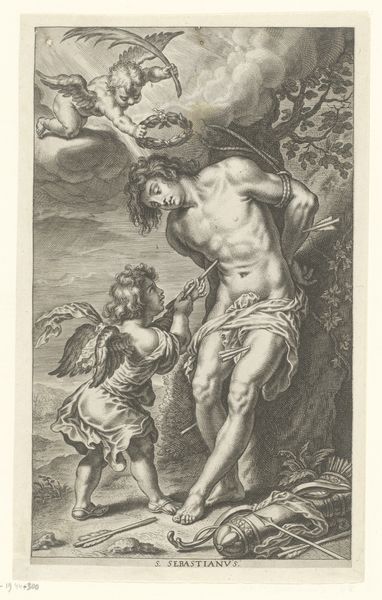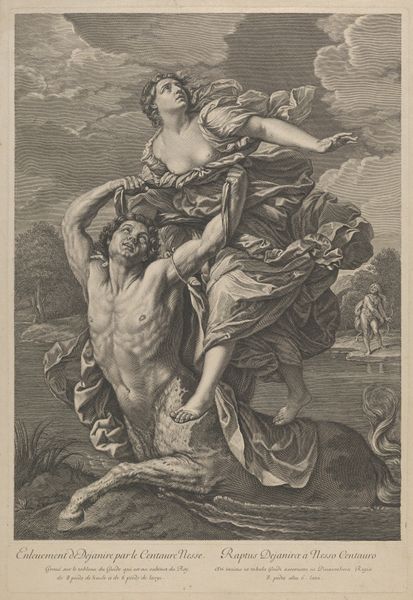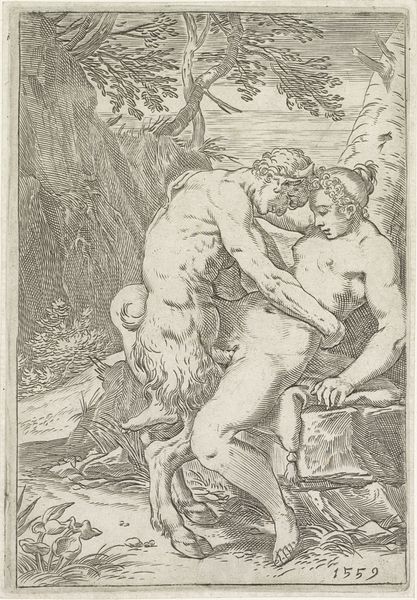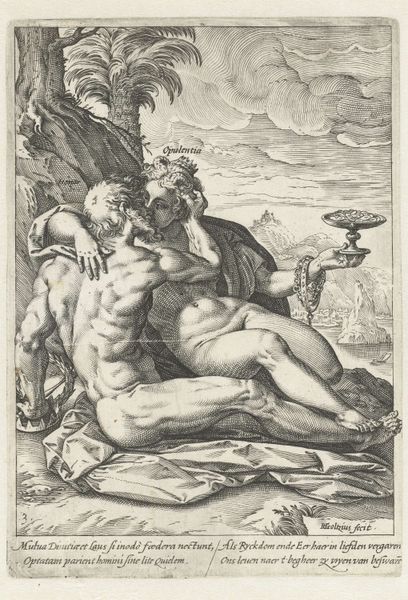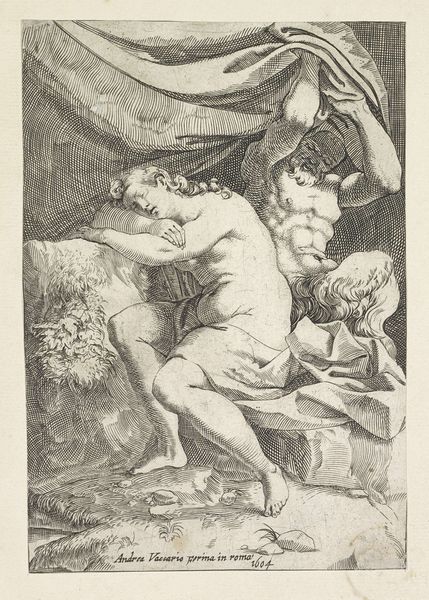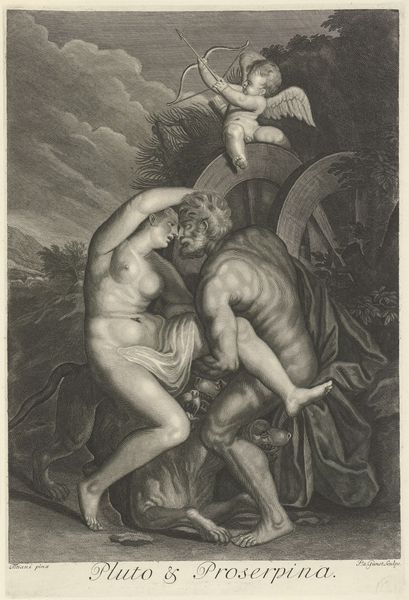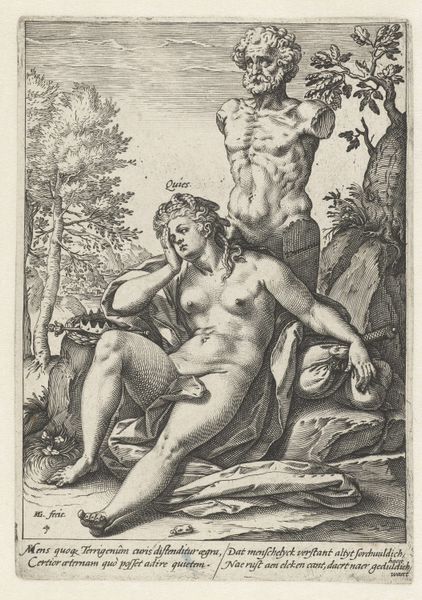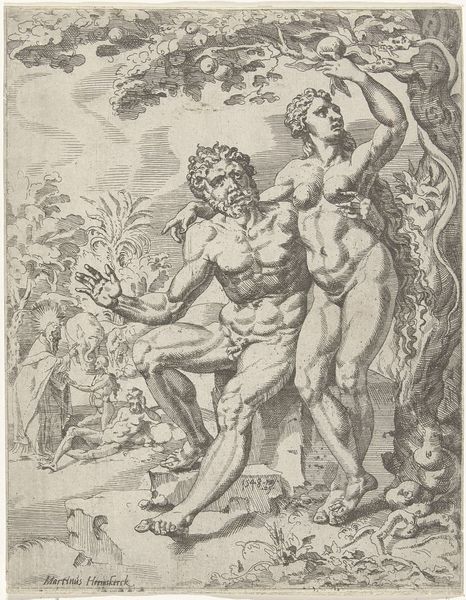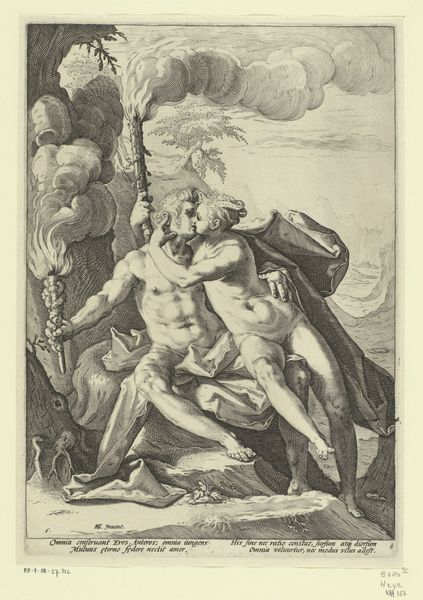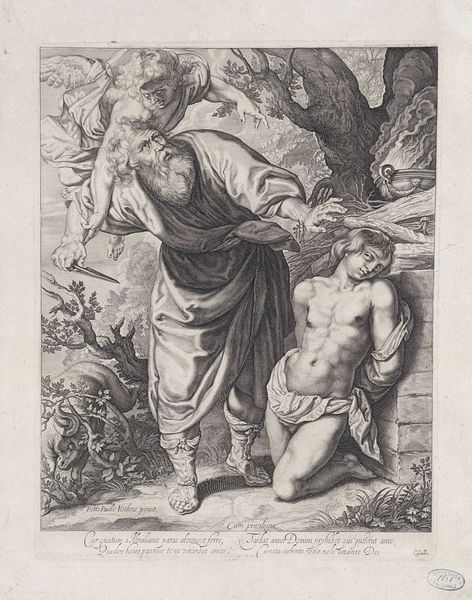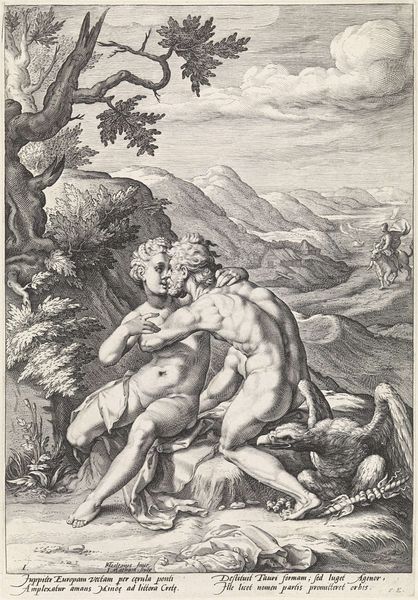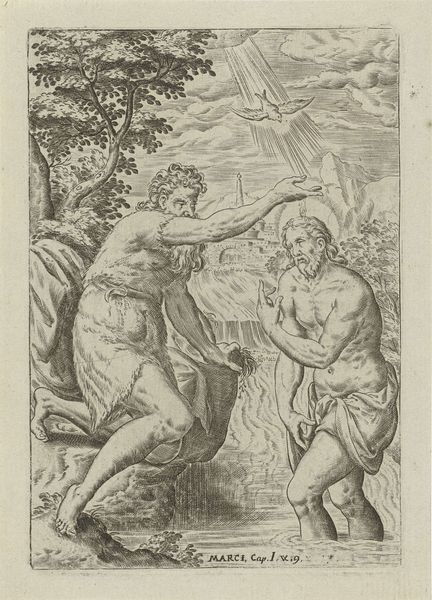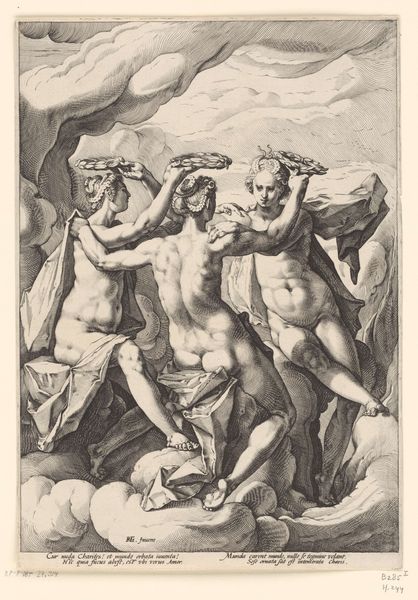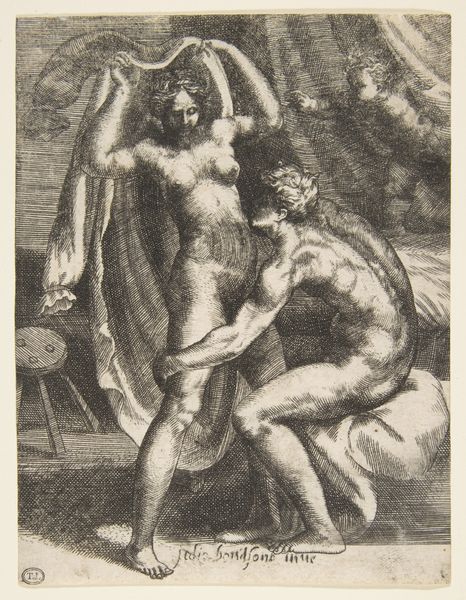
print, engraving
#
allegory
#
baroque
# print
#
portrait reference
#
history-painting
#
nude
#
engraving
Dimensions: height 438 mm, width 279 mm
Copyright: Rijks Museum: Open Domain
Editor: This engraving, "H. Sebastiaan" by Paulus Pontius, created sometime between 1616 and 1657, really strikes me. The stark contrast and the pose of Saint Sebastian – it’s quite dramatic. What stands out to you when you look at it? Curator: Immediately, the composition commands attention. Observe how the engraver uses the body of Saint Sebastian as a strong vertical axis, bisecting the image. Then, consider the formal qualities of the figure itself – the musculature, the fall of drapery – these are rendered with considerable precision. How does the rendering of light play into the emotionality? Editor: It seems to spotlight the saint’s body, enhancing the drama and pain, I guess. What about Cupid? How does he fit in? Curator: A formal reading of Cupid reveals a crucial counterpoint. Note the cherubic softness of Cupid's figure contrasted against the taut physicality of Sebastian. Semiotically, what meaning can we draw from Cupid re-arming Saint Sebastian? Editor: Is it love triumphing through his suffering? Or physical resilience from a symbol of sensuality? Curator: It's open to interpretation, however considering the structure, one sees the contrast between the earthly pain and heavenly aid creates a fascinating visual paradox within the composition, don't you agree? The Cupid figure draws focus toward the wounded body as one complete compositional unit. Editor: I hadn't thought of the Cupid and the body as an enclosed, unified composition. The paradox really becomes clear through that formal contrast. Thanks! Curator: It’s in attending to the forms and their relationships that we can move closer to understanding the artwork’s structure, after all.
Comments
No comments
Be the first to comment and join the conversation on the ultimate creative platform.
